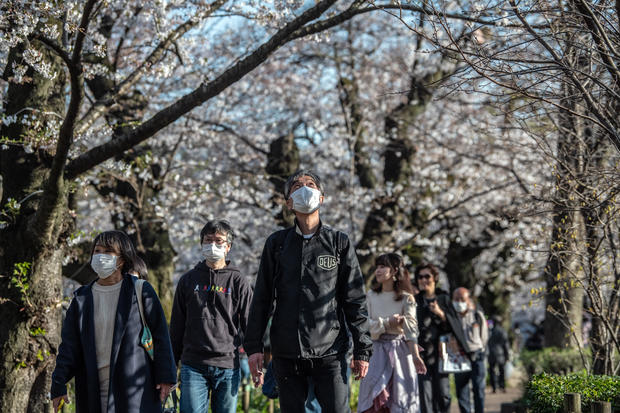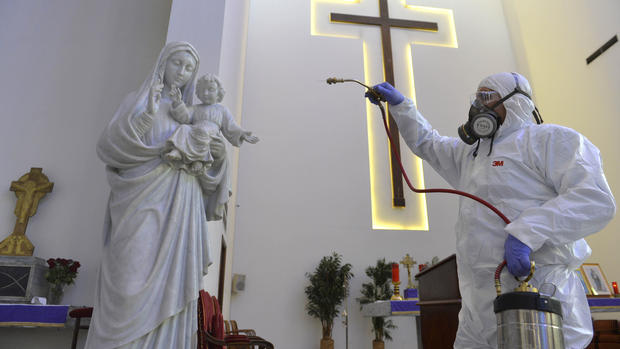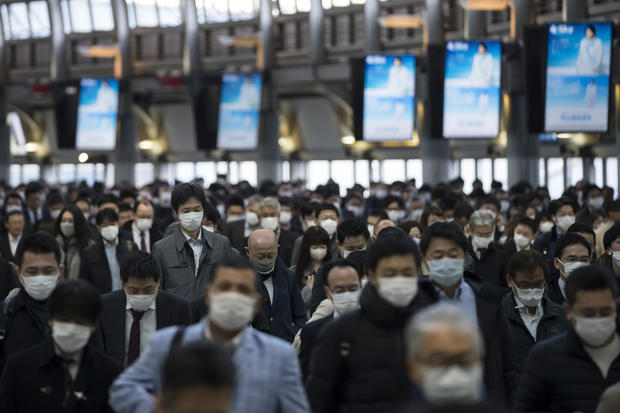Sudden spike in new Tokyo virus cases brings dire warning for Japan
Tokyo — The Japanese capital registered 47 new coronavirus cases Thursday, its biggest single-day rise, as the metropolis of 13.9 million people prepares for a weekend indoors. The worrying jump in infections prompted Tokyo Governor Yuriko Koike to hold a video conference with her counterparts in neighboring prefectures, asking them to help the greater Tokyo region to isolate itself.
Six prefectures responded quickly, asking citizens to avoid all nonessential trips into the capital, or even to stay home altogether. The region is home to about 40 million people — about a third of Japan's total population.
Disease experts are concerned not just about Japan's rising case numbers, but their inability to trace the routes of infection. Tokyo, said Koike, "is now at a critical juncture."
Compared to Manhattan, Milan or other big cities grappling with tens of thousands of cases, Japan's total of 2,000-plus infections — about a third of them from the outbreak on the Diamond Princess cruise ship — might seem insignificant. But the spiraling stats are so troubling an expert government panel released its most dire analysis ever today, saying it is "highly likely" Japan will see "rampant" infections.
That assessment triggered the formation of a central task force to direct the coronavirus fight. It also paved the way for Prime Minister Abe to declare a state of national emergency, though officials said that extreme move wasn't warranted yet. A state of emergency would enable officials to order residents to stay inside, expropriate private land for medical care, and take other extreme measures.
Governor Koike's request that one of the world's most populous cities spend the weekend indoors unleashed a frenzy of shopping so panicky the Agriculture Ministry was forced to ask the public to stop hoarding and offer reassurances that food remains plentiful. The country also has several months' worth of rice and wheat stockpiled.
While Japanese workplaces are remarkably inflexible, the crisis has pushed at least larger companies to get serious about teleworking. About 70% of firms belonging to Japan's chamber of commerce, the Keidanren, said they have or plan to introduce working from home because of the coronavirus outbreak.
Japan has so far escaped the massive disruption to daily life seen in the U.S. and other countries. While sumo is now played to jarringly empty arenas, and residents have been asked to refrain from their beloved custom of picnicking during cherry blossom season, citizens have been free to shop, stroll to day spas and movies, and go out to eat — albeit with more face mask use and hand-sanitizing than usual.
Theories as to why Japan's outbreak has been more muted than elsewhere vary. Some say a cultural avoidance of physical contact — hugging, kissing and handshaking are rare here — and an obsessive use of face masks year-round, along with a general high level of personal hygiene, may have helped keep the virus at bay. The less charitable theory is that Japan kept its numbers down by not going all-in on testing, as South Korea and other countries have done.
Whatever the reason, one thing is clear: If this weekend's voluntary measures are ineffective, residents here are bracing for the lockdowns that have become familiar in harder-hit regions of the world.






